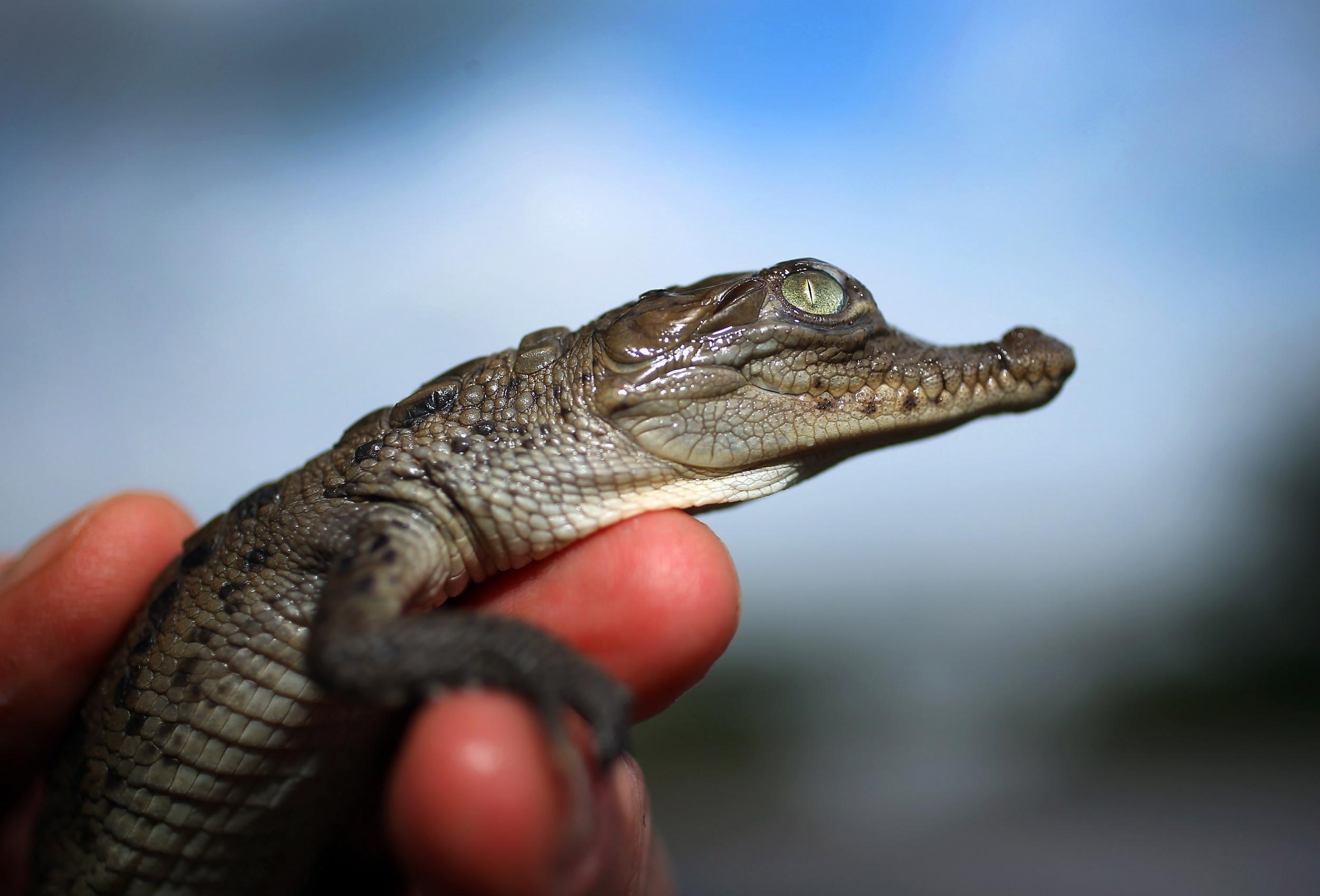More than 70 crocodiles born within week in waters surrounding power plant
Dozens more are expected to hatch soon

American crocodiles, once facing extinction, are getting a new lease on life in the waters surrounding a nuclear plant in South Florida.
The canals of Florida Power & Light’s Turkey Point nuclear plant near Homestead have become an unexpected breeding ground for the previously at-risk species. Last week, 73 crocodile hatchlings were rescued by a team of specialists. Dozens more are expected to crack out soon.
Several hundred crocodiles currently live in the 168 miles of man-made canals surrounding the plant, where specialists working for FPL keep tabs on them. They also protect the animals from hunting, and effects of climate change.
Michael Lloret, an FPL wildlife biologist and crocodile specialist, told the AP that his team works from January to April to help create nests and ponds on berms for the crocodiles to nest.
Once the hatchlings are reared and left by the mother, Mr Lloret’s team gathers them up to measure and tag and with microchips, so the specialists can observe their development. They then relocate the crocodiles to increase survival rates.
"We entice crocodiles to come in to the habitats FPL created," Mr Lloret said. "We clear greenery on the berms so that the crocodiles can nest. Because of rising sea levels wasting nests along the coasts, Turkey Point is important for crocodiles to continue."
25 per cent of the 2,000 surviving American crocodiles live in the nuclear plant’s canals, one of three major US habitats for crocodiles. The FPL team has been credited for moving the classification of crocodiles on the Endangered Species Act to "threatened" from "endangered" in 2007. They’ve tagged 7,000 babies since 1978, when the effort was established.
Temperature determines American crocodiles’ sex; the hotter it is, the more likely the animal is to be male. Mr Lloret told the AP that this year's hatchlings are male-heavy due to last month being the hottest June on record globally. Obviously, an unbalanced number of males and females reduces population.
Being away from humans, however, is at the crocodiles’ advantage at Turkey Point. Only one crocodile attack has ever been recorded in the US, when two people swimming in South Florida were bitten in 2014. Both survived. But hunting the crocodiles is still common, to Mr Lloret’s dismay.
"American crocodiles have a bad reputation when they are just trying to survive," he said. "They are shy and want nothing to do with us. Humans are too big to be on their menu."

Join our commenting forum
Join thought-provoking conversations, follow other Independent readers and see their replies
Comments
Bookmark popover
Removed from bookmarks